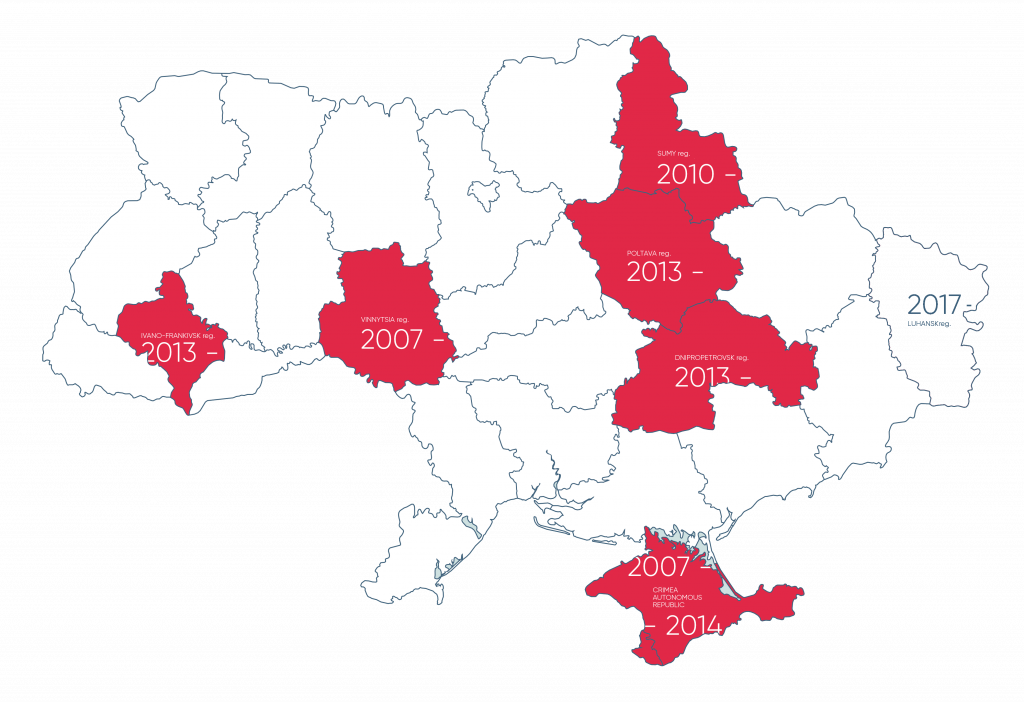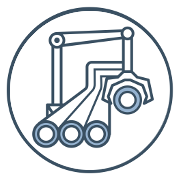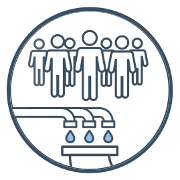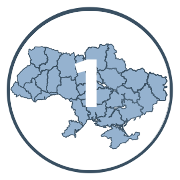Rural water supply

THE APPROACH
In 2007, the challenges facing the water sector in rural areas were damaged and aged networks, decreased or non-existing funds for water supply systems’ operation and maintenance. This has compromised many of Ukrainian rural citizens’ right to water and sanitation.
DESPRO/Skat approached the problem with different management models, with the most promising model being the service cooperative. For Ukraine, with its highly fragmented administrative set-up at rural level, such community-based model for organizing water supply worked well:
• through social mobilization, substantial financial contributions from beneficiaries were mobilized.
For very low income families facing lack of access to improved water supply under project conditions, the social cases approach was developed by DESPRO in 2012. The partner community is given the task to identify the families with special needs and approve a special policy regarding their financial participation in the project.
• village community members expressed their common interest and/or agreed goals via a community-based organization (CBO) or a service cooperative, providing direct investments to the water supply network
• village self-government authorities were responsible for the allocation of financial resources to undertake the required water supply measures
• district authorities, responsible for regional development, allocated specific funds like state budget transfers to be used by village self-government as investments to the water supply network
• navigating the legal limitations of different entities, either a service cooperative or a community-based enterprise (CBE) provided operation and maintenance to the water supply network, thus being service providers to community members
• DESPRO has been providing support to village communities selected upon competition by supporting the elaboration and implementation of community projects, based on this model. The set of social, legal/institutional and technical requirements was principal for each water supply project following the model.
The DESPRO intervention approach included the establishment of District Working groups at partner districts steered by the Regional Steering committees. The District Working groups consisted of a representative of state executive authority and elected self-government body, as well as a DESPRO expert. As part of the capacity building portfolio, the members of working groups and Regional steering committees benefited from extensive training through cooperation with DESPRO.
Integration of direct support into existing power bodies served also to form a new type of relationship between communities and authorities of different levels, as the project implementation processes required joint planning and implementation of socially important initiatives by both communities and authorities at upper levels.
>The detailed methodology and lessons learned by DESPRO between 2007-2016 are described in the “Rural Water Supply” brief, available in the website library.
The decentralization reform, started in 2014 and aimed at increasing the individual capacities of smaller communities through their amalgamation, slightly reduced the relevance of community-based approaches for service provision, even in rural areas. Since then, DESPRO has been gradually focusing on “local government-led projects”, providing support directly to local self-government bodies.
>The detailed methodology and lessons learned by DESPRO focusing on local government-led projects after 2016 are described in a separate brief, available in the website library.
THE ACHIEVEMENTS
 137 projects implemented |
 over 87’500 beneficiaries |
98,5 %
project functionality rate |
|
80-90 % customer satisfaction with the quality of water supply service provision |
 the service cooperative as a legal form of service provider was developed and introduced by DESPRO for the first time in Ukraine |
 the support and administering of local projects was fully institutionalized at sub-regional and regional level |
 allocation of additional financial resources in the regional and local budgets for water-related projects made possible |
3 out of 6 regions replicated the DESPRO support modalities and procedures into the regional budget grant programmes for local communities |
250 new jobs created, mostly through new official job positions in newly established CBOs acting as water supply service providers |
|
54% average total contribution by the community households to the water supply project |
30%
max contribution by the DESPRO project to each water supply project
|
16% co-funding provided from budgets (local, district, regional) |
|
500 local authority officers, community leaders, representatives of district and regional authorities developed their capacities in course of project implementation |
 for a great number of partner communities, the implementation of a water project with DESPRO became a new reality of local development boosting ambition for more local |
 series of manual, practical guides, videos, and an online training course have made this specific knowledge available for dozens of thousands of stakeholders |
LEARN MORE
The detailed methodology and lessons learned by DESPRO focusing on local government-led projects after 2016 are described in a separate brief, available in the website library.
The detailed methodology and lessons learned by DESPRO between 2007-2016 are described in the “Rural Water Supply” brief, available in the website library.
The collection of DESPRO impact stories including stories of water supply projects'
beneficiaries is available in the website library.
More materials:
Analytical Paper on Service Cooperatives (2012)
"Social Cases in Ukraine: Reaching Universal Access to Water Supply at Community Level"
The short paper by DESPRO expert Viacheslav Sorokovskyi (2016)
Project video “Ukraine: Way Towards Good Governance in Rural Water Supply”
More publications and study materials are available in Ukranian in the website library and on “Voda v selo” (Water to Village) web page

|





